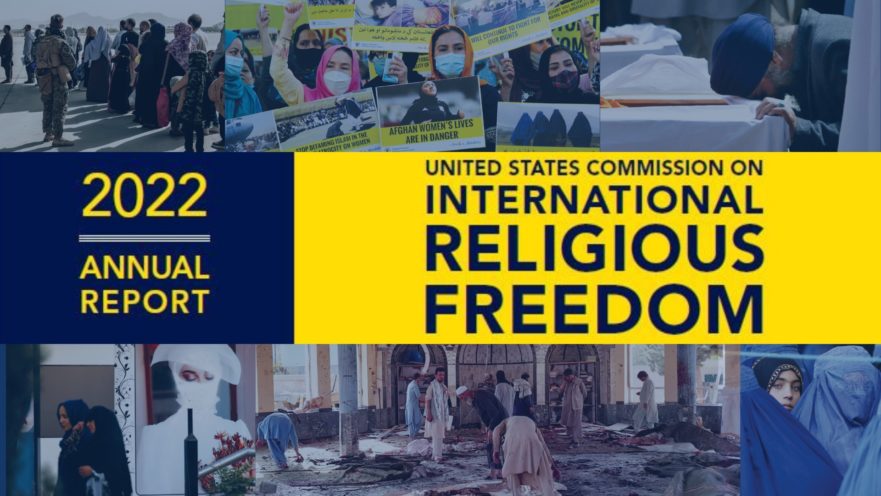By Dr. Ewelina U. Ochab
We live in a century haunted by religious persecution. The genocide perpetrated by Daesh against Yazidis, Christians and other religious minorities in Syria and Iraq; the genocide perpetrated against Rohingya Muslims and the persecution of other religious minorities in Myanmar; the targeting of the Uighur Muslims in China; bomb attacks on churches in Sri Lanka on Easter Sunday – to name only a few examples.
As acts of religiously motivated violence are on the increase, it is crucial to look beyond steps currently taken to address such atrocities and to consider what more can be done. However, to be able to do more, one has to have a good understanding of the situation, and of the concerns and the nuances within. No case of religious persecution is the same and only a targeted approach can provide for an adequate solution.
One of the actors providing such detailed analysis of situations of concern is the United States Commission for International Religious Freedom (USCIRF). USCIRF is an independent, bipartisan, U.S. federal government commission created by the 1998 International Religious Freedom Act (IRFA). Its aim is to monitor the implementation of the right to freedom of religion or belief around the world, in accordance with international law standards. USCIRF makes policy recommendations to the United States President, the Secretary of State, and Congress.
It has to be emphasized that the U.S. Administration does important work addressing the issue of religious persecution and even producing annual reports on the situation of religious freedom around the world (the State Department’s Annual Reports on International Religious Freedom). However, this does not make the work of USCIRF redundant. Indeed, the work done by the two actors is complementary. As USCIRF describes it: “whereas the State Department must account for overall bilateral relationships in its reporting, USCIRF has the independence and objectivity to call out violations wherever and whenever they may occur.” Such independence and objectivity are crucial.
Furthermore, the focus of the USCIRF’s annual reports is also to analyze the U.S. policy in relation to freedom of religion or belief and how it addresses the situations of concern identified in its report. It makes recommendations to the US Administration and to the Congress on what could be done for their response to be more effective.
Lastly, and what makes USCIRF stand out from any other actor working on the issue of religious persecution, is a victim-centered approach. Among others, USCIRF’s annual reports list prisoners of conscience around the world, putting a human face to the stories. USCIRF’s commissioners take patronage over each identified prisoner of conscience and advocate on their behalf.
Despite the crucial work carried out by USCIRF, it does not have permanent status and its existence depends on the renewal of its authorization by Congress. The current authorization expires on September 30, 2022. 21Wilberforce’s Coordinator of Advocacy and Training, Trent Martin, is one of three co-chairs for the International Religious Freedom Roundtable’s Congressional Working Group. For the past few months he has helped coordinate meetings with Congressional staff to encourage reauthorization. Trent led efforts to promote the issue on social media. Also, 21Wilberforce is one of dozens of NGOs and religious groups that signed an International Religious Freedom Roundtable letter urging Congress to pass the bill.
Legislation was passed in late September and is waiting for President Biden’s signature. It is anticipated that this will happen before the Friday deadline. “We congratulate Congress for the bipartisan reauthorization of USCIRF’s vital work to face the myriad of international freedom of religion or belief challenges in our world today”, said Trent Martin. “USCIRF continues to be a strong, independent voice for those facing persecution and their research drives effective responses from governments and civil society.”

